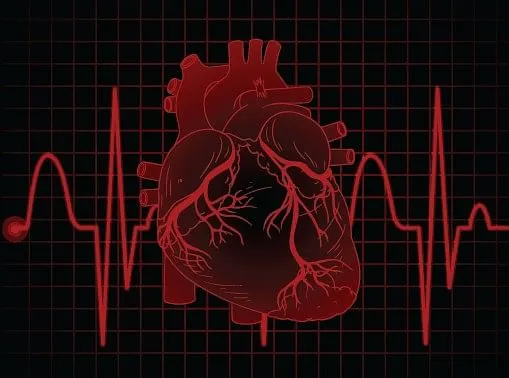Skipping of a heart beat also sometimes felt like a missed beat is a frequent complaint for which a medical consultation is sought.
This includes both young and old people. In elderly people who often have underlying issues like high BP, diabetes and previous heart problems these can lead to problems. It can alarm the person especially when he feels that no pulse can be felt for a short while or a very strong pulsation is felt in the neck following it.
Very often otherwise the person is fine and it comes in episodes. This kind of a symptom in an otherwise healthy person is not serious. It can be precipitated by anxiety, anger, after taking some drugs like cough mixtures, excessive coffee, alcohol and nicotine contained in cigarettes.
Individuals on diuretics (Water pills) may get this, if the serum sodium or potassium becomes low. It is always good to have underlying heart problems ruled out. An electrocardiogram and echocardiography are usually sufficient to rule out an underlying heart problem.
Persons who have underlying heart related problems, like a previous heart attack, those with a poor heart function (low LVEF), history of having undergone procedures like angioplasty/stenting and bypass surgery need to take this symptom seriously and need to see their physician or the cardiologist.
Serious forms of Heart Palpitation (Arrhythmias)
If the pulse rate becomes very rapid episodically and is associated with symptoms like dizziness or a transient loss of consciousness it can be a serious issue.
Your doctor would like to investigate you by carrying out tests like an echocardiography and an ECG monitoring for long periods of time using recorders like a Holter monitor ( which can continuously record the heart rhythm for 24 to 48 hours).
If the diagnosis of the rhythm disorder is still elusive, recordings up to a week can be made using an extended loop recorder (ELR). The diagnosis of the rhythm disorder (arrhythmia) is very important for treating it.
An arrhythmia often seen in senior citizens frequently is called atrial fibrillation. It leads to a very irregular and a very rapid pulse rate usually more than 150 beats/ minute.
An ECG during the palpitation is diagnostic. Underlying problems like high BP or a diseased heart valve or a birth defect (atrial septal defect, even after closure) need to be looked for.
This disorder besides producing a very scary rapid heartbeat can lead to formation of clots in the heart which can reach the brain leading to a brain stroke, resulting in a devastating paralysis. Such individuals must see a cardiologist at the earliest to prevent this catastrophe. These patients often need anti-coagulants for the long term. Aspirin alone is not effective.
Role of Lifestyle modification in patients with missed heart beats:
Young persons with no underlying heart disease and missing beats are amenable to these measures and do not need to take medicines.
1. Heart healthy diet, plenty of fruits, salads and leafy vegetables.
2. Regular exercise and sporting activities at least 5 times a week.
3. Avoiding excessive intake of stimulating beverages like coffee, and very strong tea.
4. Stop smoking
5. Avoid alcohol.
6. Stress management and relaxing techniques
7. Loose weight if overweight
8. Taking the prescribed medicines if advised by your treating doctor.
Take Home Message:
Missed or skipped pulse or heartbeat is a common symptom. In persons without any underlying heart disease it is invariably benign and does not need any special measures except a good lifestyle. However, in individuals who get it very often a consultation with a doctor is desirable.
On the other hand, persons with underlying heart related problems and for those where the palpitation is associated with dizziness or a fainting must seek an urgent medical attention.
These persons are often senior citizens in whom arrhythmias like atrial fibrillation are common and can get a stroke because of clots in the heart. These complications can largely be prevented by medical treatment.
Prof Koul is a Founder Director, Gauri Kaul Foundation
Disclaimer: The views and opinions expressed in this article are the personal opinions of the author.
The facts, analysis, assumptions and perspective appearing in the article do not reflect the views of GK







